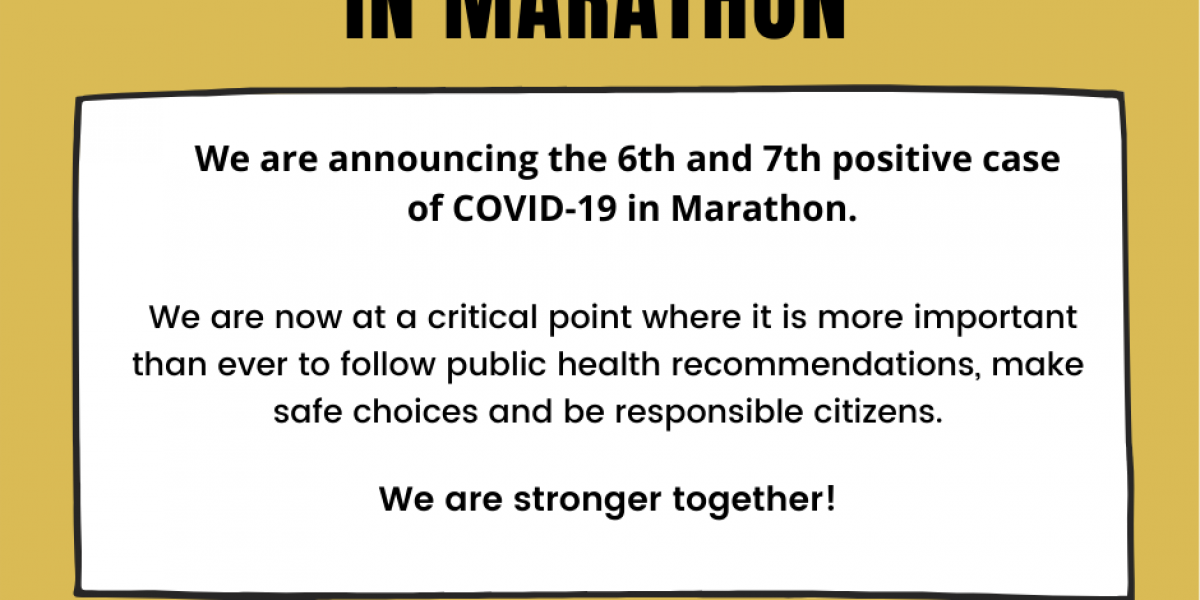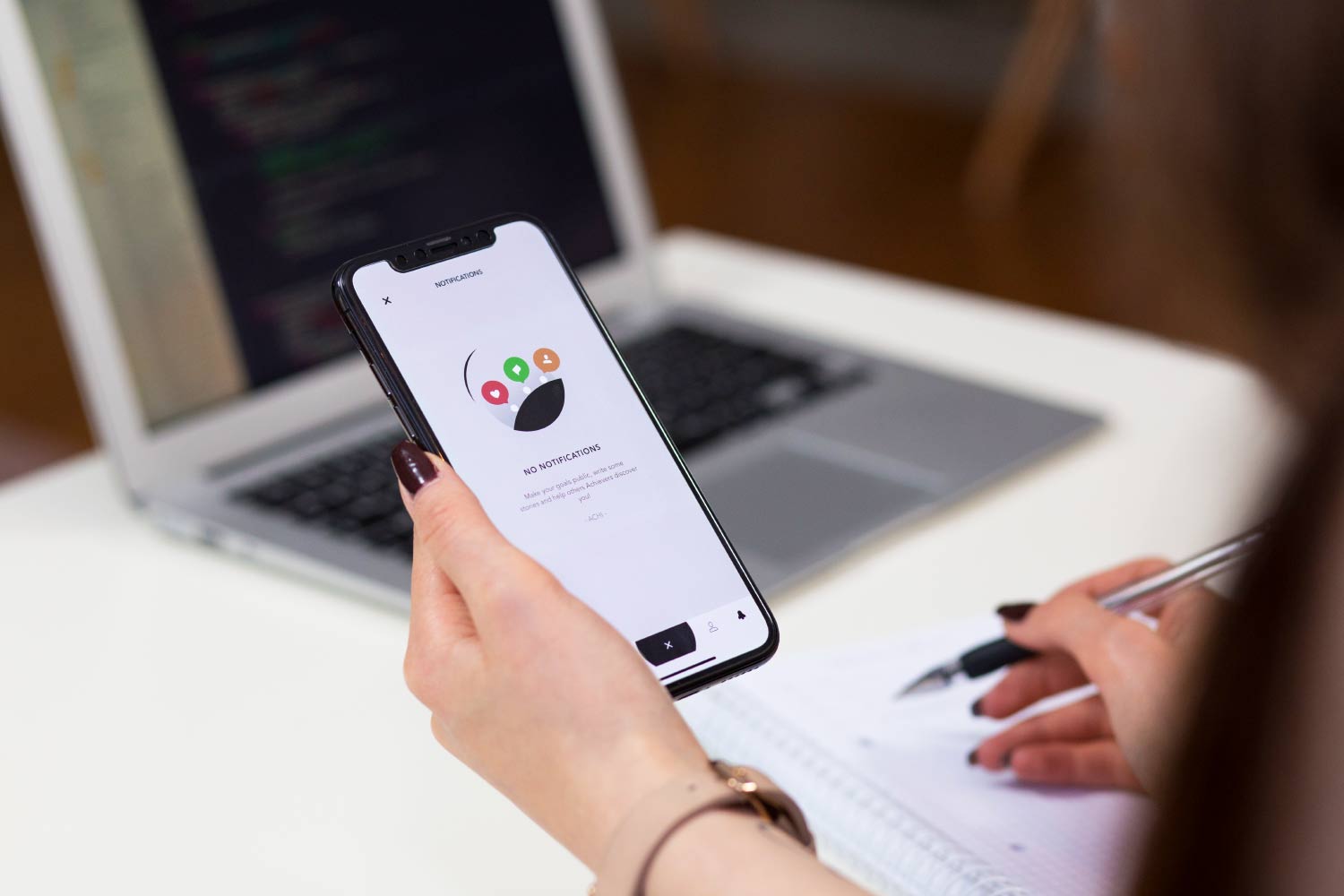December 5th, 2020 – The Marathon Family Health Team (MFHT) and the North of Superior Healthcare Group (NOSH) are announcing the 6th and 7th positive cases of COVID-19 in Marathon.
All patients who have tested positive for the virus have been contacted by the Thunder Bay District Health Unit (TBDHU) and are self-isolating at home to prevent further spread of the virus. The exposure categories of both new cases are unknown at this time, but this information will be reported by TBDHU when it becomes available.
The TBDHU is completing very thorough contact tracing and will contact those who are considered high risk contacts of the individuals who have tested positive for COVID-19. The contact tracing process typically happens within a 24-hour period.
To help with the contact tracing process, everyone should strongly consider downloading the COVID Alert App. This app will alert you when you have had an exposure to a positive case of COVID-19. If you receive an alert, please self-isolate right away and call TBDHU for further instructions at 807-625-5900 or 1-888-294-6630.
Preparing for further spread of the virus
We should now assume that COVID-19 is circulating in our communities and that there is community transmission of the virus. We encourage everyone to act accordingly and to do their best to limit the spread of COVID-19 in our communities.
We can appreciate how tired everyone is of hearing about COVID-19, but we are now at a critical point where it is more important than ever to follow public health recommendations, make safe choices and be responsible citizens.
We need to work together to limit the further spread of the virus in our communities. By doing so, we will help our loved ones, friends and neighbours stay healthy and help reduce the burden on our local healthcare system, which can now easily become overwhelmed. Remember needing to stay vigilant is for now, not forever.
For the safety of our communities, your healthcare team urges you to follow the advice below:
Limit your close contact to your household members (the people you live with)
Limiting your close contacts is crucial because unlike with other illnesses, people who have COVID-19 don’t always have symptoms, and those who do often don’t notice their symptoms until five or six days after becoming infected with the virus (this is known as the incubation period). This means that people who are infected can be circulating in the community and transmitting the virus to others without knowing it.
Individuals who live alone, including seniors, may consider having close contact with another household to help reduce the negative impacts of social isolation.
Stay home unless it’s necessary
Stay home as much as possible by limiting visits to essential businesses (e.g. the grocery store and pharmacy) to once per week, ordering take out instead of dining in and working from home, if able. These are examples of strategies that can be used to help reduce the risk of virus transmission in our communities.
Get tested if you have symptoms associated with COVID-19
By getting tested for COVID-19, you play an important role in containing and slowing the spread of the virus in our communities. On average, individuals who get tested locally have been receiving their results within five days. This helps our healthcare system and public health authorities appropriately manage positive cases.
We want to thank each individual who has or will take on the responsibility of being tested.
Continue to follow guidance from public health and your primary care provider
If you are contacted by TBDHU or your primary care provider, carefully follow their guidance and direction. Following their advice will help keep everyone in our communities safe.
It’s also recommended to continue following the important messages that have been repeatedly shared over the last few months, including:
- Maintain two metres of physical distancing from everyone else
- Wear a face covering indoors, outdoors if physical distancing cannot be maintained, or if wearing one is required
- Stay home if you have symptoms, even if they are mild
- Wash your hands thoroughly and regularly
- Limit travel outside of Northwestern Ontario unless it’s necessary
If you have any symptoms associated with COVID-19 or are concerned that you need to be tested for COVID-19, first self-isolate, then contact MFHT by using one of the following options:
- Calling 807-229-3243,
- Emailing appointments@mfht.org, or
- Requesting an appointment via our website (https://mfht.org/).
Additional Support
All new case information can be found on the TBDHU website (www.tbdhu.com/news) and Facebook page. If you have any questions related to COVID-19, including how to self-isolate, how to determine if you are a close contact, etc., please contact the TBDHU for more information. Public health professionals are here to guide you and to provide you with individualized advice during these uncertain times.



